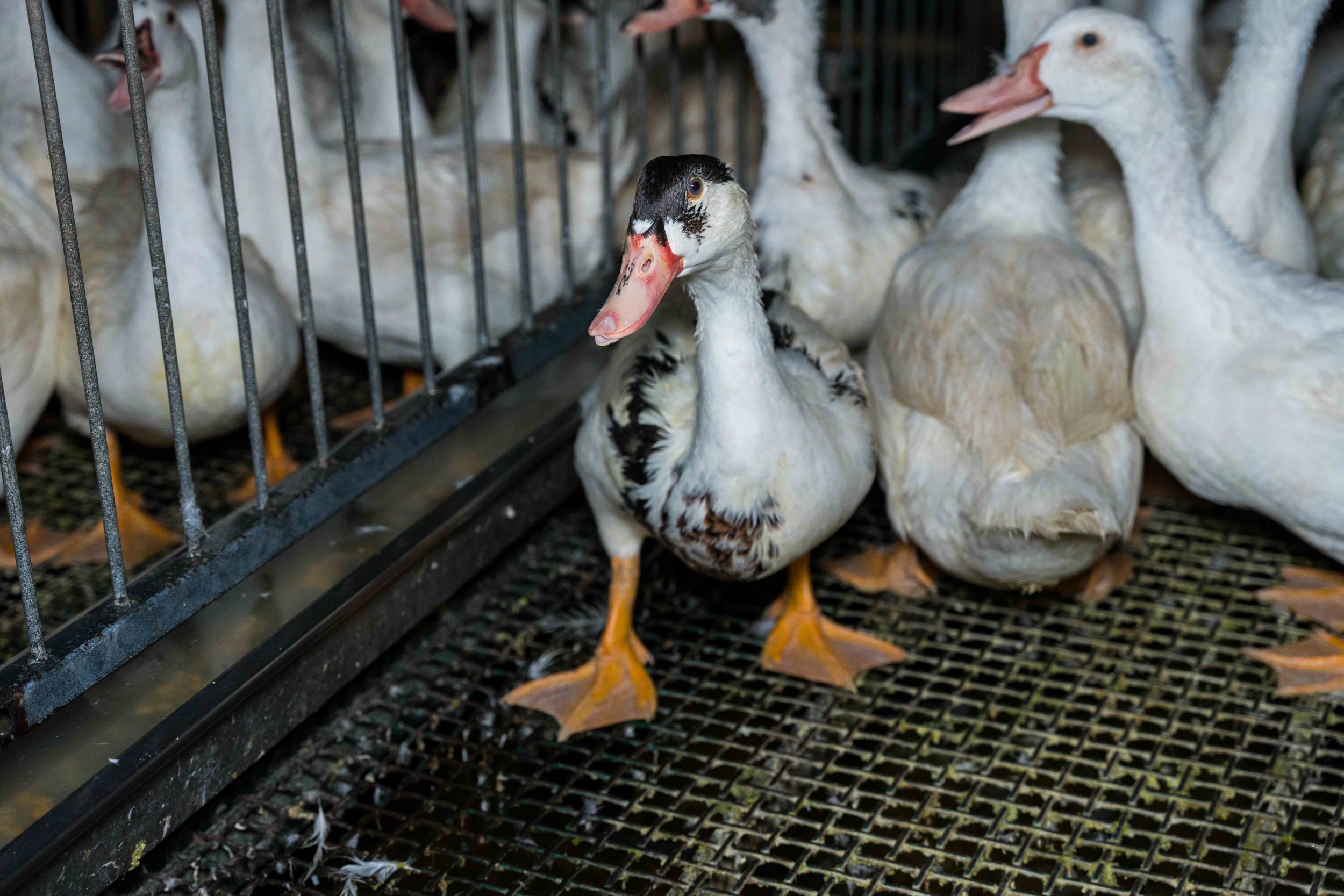
Credit: We Animals Media
Animal Outlook v. Harvey’s Market
The food known as “foie gras” comes from dangerously force-feeding a duck or a goose.
A duck foie gras producer will shove a tube down each ducks’s throat three times a day over nearly three weeks. This forces the duck to ingest so much food that his liver grows up to ten times its usual size. As a result, the liver reaches a diseased state, increasing the bird’s mortality risks.
Because of this cruelty, producing and selling foie gras can create legal or reputational issues. For instance, it’s illegal to sell foie gras in California. See Cal. Health & Safety Code § 25982 (“A product may not be sold in California if it is the result of force feeding a bird for the purpose of enlarging the bird’s liver beyond normal size.”); Ass’n des Éleveurs de Canards et d'Oies du Quebec v. Becerra, 870 F.3d 1140 1153 (9th Cir. 2017) (upholding constitutionality of foie gras sales ban).
On August 10, 2023, LIC thus contacted a San Francisco caterer to demand that the company “permanently stop selling foie gras.” The caterer responded immediately, and agreed to remove this cruel dish from its menu!
Then, on July 30, 2024, LIC sent a cease-and-desist letter to DC butcher shop Harvey’s Market on behalf of LIC’s client, Animal Outlook. The letter demanded that Harvey’s Market stop labeling its foie gras as “humanely raised.” But Harvey’s Market stated that it has no plans to change anything.
So, on October 15, 2024, LIC filed a lawsuit against Harvey’s Market in the Superior Court of the District of Columbia, on behalf of Animal Outlook. The Animal Outlook v. Harvey’s Market complaint alleges that this type of misleading advertising violates the District of Columbia Consumer Protection Procedures Act.
The lawsuit had an immediate impact! “Harvey’s Market . . . discontinued the sale of foie gras once notice of this lawsuit was received,” according to the butcher shop’s answer to our complaint.
